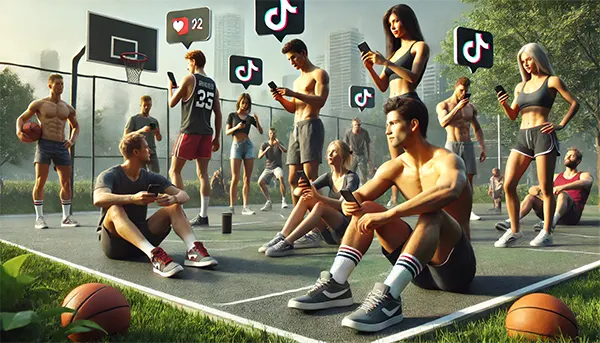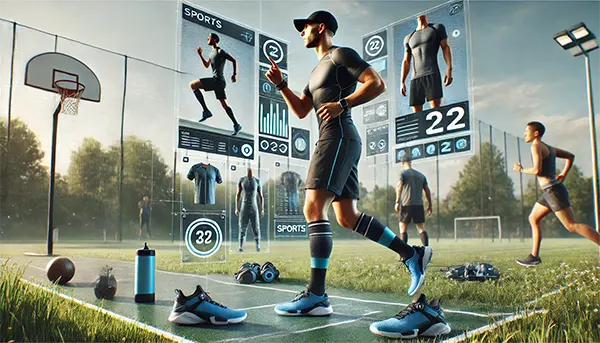
Why Micro-Influencers Are Replacing Celebrities in Sports Marketing
In the dynamic world of sports marketing, a significant shift is taking place. Traditional celebrity endorsements, once the gold standard, are being replaced by micro-influencers. These smaller-scale digital personalities are redefining engagement, authenticity, and conversion rates for brands. But why is this happening? Let’s explore the growing dominance of micro-influencers in the sports industry.
The Rise of Micro-Influencers in Sports Marketing
Micro-influencers, typically defined as individuals with 10,000 to 100,000 followers, are gaining traction in sports marketing. Unlike celebrity athletes, they cultivate niche audiences that trust their recommendations. This trust translates into higher engagement rates, making them valuable partners for sports brands.
One key reason for their rise is their relatability. While global superstars feel distant, micro-influencers are perceived as more approachable and authentic. Their followers see them as peers rather than unreachable icons. This fosters deeper connections and increases the effectiveness of brand promotions.
Moreover, micro-influencers often produce content that feels organic rather than overly polished. This resonates with modern audiences who prefer genuine endorsements over scripted advertisements. As a result, sports brands achieve better ROI with micro-influencer campaigns than with traditional celebrity endorsements.
How Micro-Influencers Drive Higher Engagement
Engagement is the most valuable metric in digital marketing, and micro-influencers consistently outperform celebrities in this aspect. While a celebrity might have millions of followers, their interaction rates are often lower than those of smaller influencers.
Micro-influencers tend to have more personal interactions with their audience. They reply to comments, engage in direct messages, and create content tailored to their community’s interests. This makes their audience feel valued and heard, fostering loyalty and trust.
Furthermore, the algorithmic nature of social media platforms benefits micro-influencers. Platforms like Instagram and TikTok prioritise content that generates organic engagement, meaning posts from smaller influencers are more likely to be seen than those from celebrities who rely on broad-reach advertising.
Cost-Effectiveness and Targeted Marketing
Another advantage of micro-influencers in sports marketing is cost-effectiveness. Brands often spend millions securing endorsement deals with high-profile athletes, but these partnerships do not always guarantee a proportional return on investment.
Micro-influencers, on the other hand, offer a more affordable solution while delivering targeted marketing. Instead of one celebrity reaching a broad audience, multiple micro-influencers can be engaged to target specific demographics. This allows brands to optimise their marketing budgets more efficiently.
Additionally, these influencers often accept different compensation models, such as affiliate marketing or performance-based incentives. This ensures that brands only pay for real engagement and conversions, rather than just exposure.
Building Long-Term Brand Loyalty
Brand loyalty is a crucial factor in sports marketing, and micro-influencers are instrumental in fostering long-term relationships between consumers and brands. Unlike one-time celebrity endorsements, micro-influencer collaborations are often ongoing and feel more genuine.
When influencers consistently promote a brand, their audience begins to associate them with it. This long-term exposure builds trust and credibility, making consumers more likely to engage with the brand over time.
Moreover, because micro-influencers usually focus on niche communities, they can create personalised marketing experiences. This level of attention enhances customer retention and drives repeat engagement, ultimately benefiting the brand’s long-term growth.

The Future of Sports Marketing with Micro-Influencers
The dominance of micro-influencers in sports marketing is set to continue growing. As consumer preferences shift towards authentic content, brands must adapt their strategies to stay relevant in the digital age.
Emerging trends, such as live-streaming, interactive content, and athlete-influencer collaborations, further cement the importance of micro-influencers. These digital creators bridge the gap between traditional advertising and modern audience expectations, offering a more engaging and immersive marketing experience.
Ultimately, brands that embrace micro-influencers will not only enhance their visibility but also foster stronger connections with their target audience. As sports marketing evolves, authenticity and engagement will remain the key drivers of success.
Final Thoughts
The shift from celebrity endorsements to micro-influencer marketing is revolutionising the sports industry. With their ability to engage audiences authentically, provide cost-effective advertising solutions, and build lasting brand loyalty, micro-influencers are proving to be a game-changer.
Brands that prioritise these digital creators will gain a competitive edge in the ever-changing sports marketing landscape. As the industry continues to evolve, micro-influencers will remain at the forefront, reshaping how sports brands connect with their audiences.
